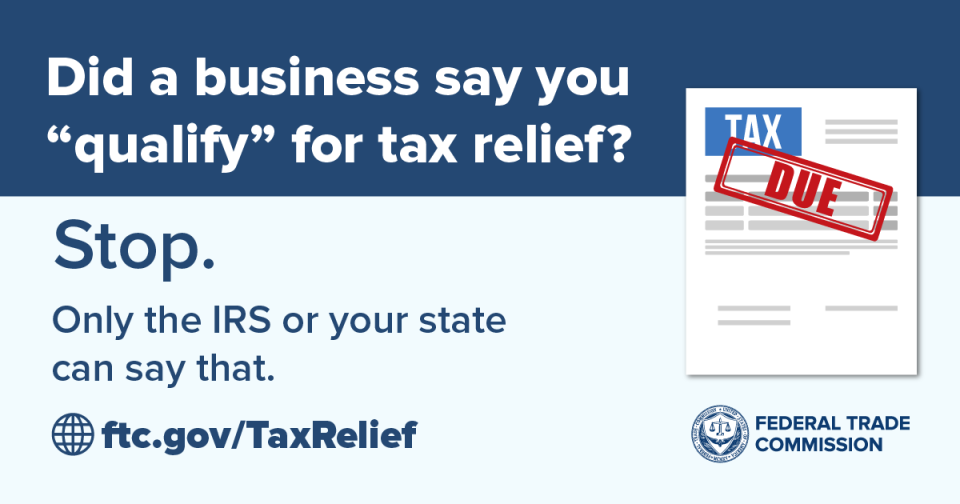Tax season might be over, but your tax issues might not be. What happens if you owe back taxes and don’t know how you’re going to pay them? Tax relief companies might say they can help, but often they’ll just leave you even further in debt without any relief. Here’s what to know.
Tax relief companies say they can lower or get rid of your tax debts and stop back-tax collection. They say they’ll apply for IRS hardship programs on your behalf — if you pay them first. But if you pay, you may end up further in debt without the promised tax relief. The truth is that most taxpayers are unlikely to qualify for the programs these scammers advertise. In many cases, these companies don't settle your tax debt. Some don't even send your paperwork to the IRS to apply for programs to help you.
So, what can you do? Try to work out a payment plan directly with the IRS (for your federal taxes) or your state comptroller (for your state taxes). Also remember:
-
Ignore promises from businesses that say you "qualify" for a tax relief program. Only the IRS or your state comptroller can decide what you qualify for.
-
Don't do business with anyone that tells you to pay their whole fee upfront. If they say that, walk away.
-
Steer clear of companies that charge you pricey monthly “maintenance fees.” Some companies will tell you they can resolve your matter quickly and that you’ll pay the fee for just a few months. But the fees add up quickly.
-
No company can guarantee a particular result. Every taxpayer’s situation is unique.
For more, read Trouble Paying Your Taxes?. And if you have a problem with a tax relief company, tell the FTC at ReportFraud.ftc.gov.


I may have heard some of these tax pitches on talk radio.
In reply to I may have heard some of… by Tom O'Neill
What will I do now I don't have tax number please I need tax number
Lame.
I suppose you think that the American citizens are pretty stupid. I, on the other hand, do not think that the FTC is very smart, rather stupid. The FTC was once great, a number of years ago. You pale in comparison today.
I've had three chatty robocalls about this in the past week. All sounded very friendly. I've paid my taxes and so I deleted them, but it concerned me that others might be duped by these calls.